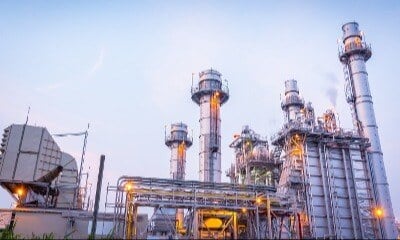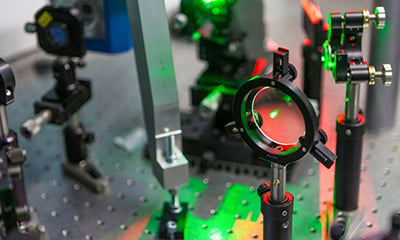What is catastrophic optical damage (COD) to a laser diode?
By Seminex

COD occurs when the semiconductor junction is overloaded by exceeding its power density and absorbs too much of the produced light energy, leading to melting and recrystallization of the semiconductor material at the facets of the laser.
Catastrophic optical damage is a phenomenon that occurs in semiconductor lasers, particularly laser diodes, when they are over-driven or subjected to excessive optical power. COD leads to the destruction of the laser's facet due to the intense optical power, causing permanent damage and rendering the laser non-functional. Understanding the failure mode of COD is crucial for designing reliable laser diode systems.
The primary cause of COD is the excessive optical power absorbed by the laser facet, leading to localized heating and subsequent damage. This damage is often characterized by the formation of burn spots or craters on the facet of the laser. Over-driving a laser diode beyond its specified power limits or operating it under unfavorable conditions can trigger COD.
SemiNex Corporation’s Indium Phosphide (InP) lasers have unique properties that make them much less susceptible to COD compared to other materials and much more reliable for mission critical applications. InP is a compound semiconductor material commonly used in the fabrication of our high-performance laser diodes. The key reasons why InP lasers exhibit reduced susceptibility to COD include:
Material Properties
Indium phosphide has a higher thermal conductivity compared to some other semiconductor materials. This allows InP lasers to dissipate heat more effectively, reducing the risk of localized heating and damage associated with COD.
Bandgap Energy
The bandgap energy of indium phosphide is such that it absorbs less of the incident optical power compared to other materials. This property helps in minimizing the risk of COD by reducing the amount of absorbed energy that contributes to facet damage.
Waveguide Design
The waveguide structure in InP lasers is designed to efficiently guide and confine the optical mode, reducing the likelihood of excessive optical power reaching the facets and causing COD.
SemiNex Laser Advantages
- Lowest catastrophic optical damage
- Use InP material systems with the highest reliability
- Operate well over a wide thermal range
- High electrical efficiency
- Best for higher power devices
By Seminex
Related articles
Featured, Datacom, New applications, Artificial Intelligence
The Data Center Footprint is Unsustainable
The Data Center Footprint is Unsustainable
Featured, New applications
Demand for Indium Phosphide Chips Driven by Communications and Consumer Electronics Applications
Indium phosphide (InP) has emerged as a critical semiconductor material, ...



.jpg)
.jpg)
.jpg)
.jpg)


.jpg)
.jpg)


